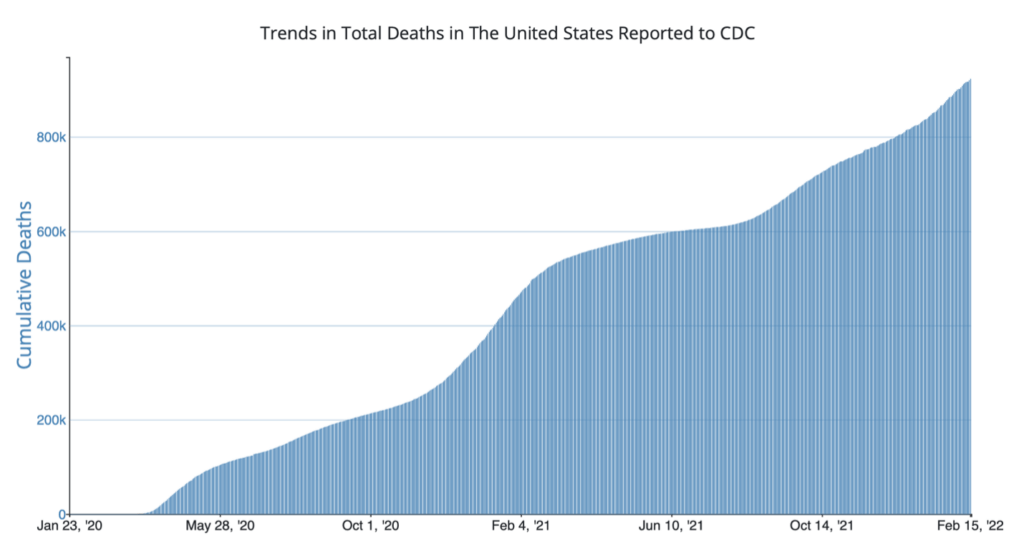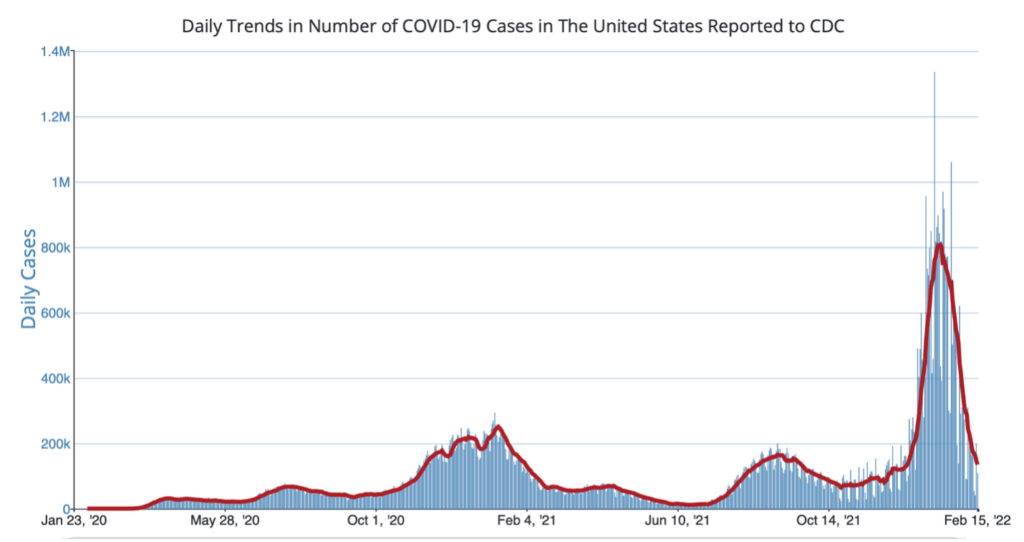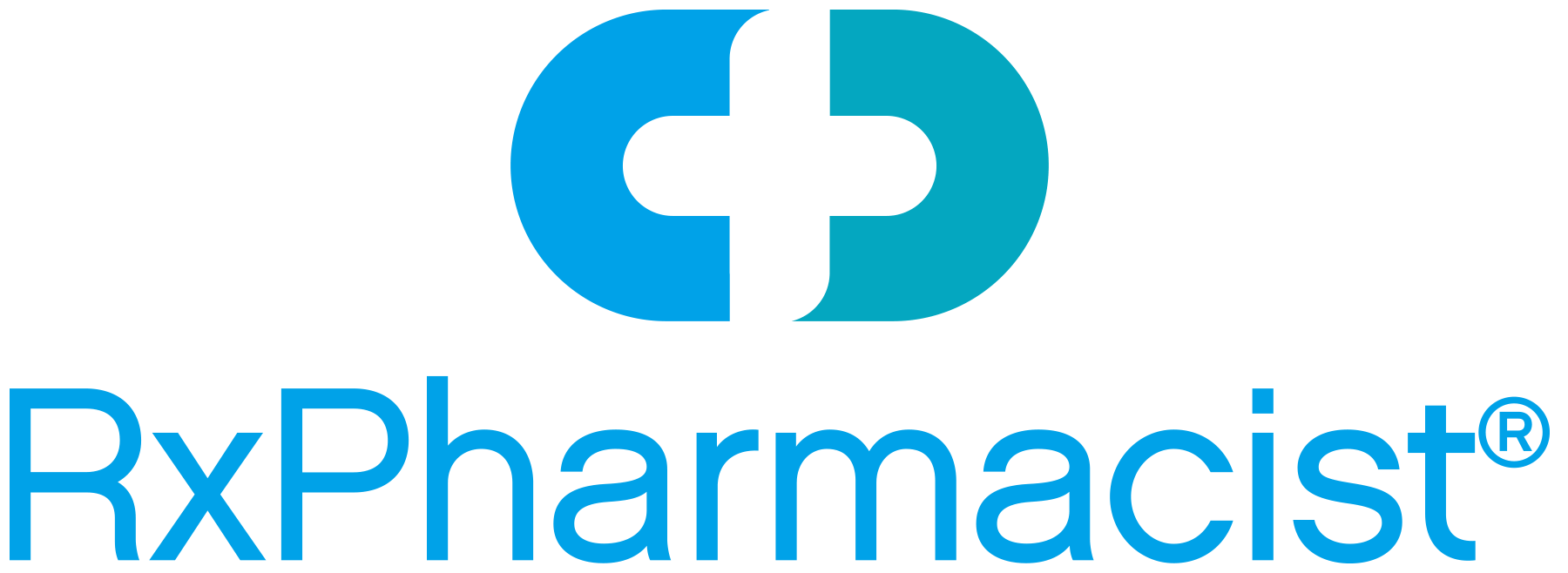
Current Trends During the COVID-19 Pandemic and the Pharmacist’s Perspective
The COVID-19 pandemic has affected everyone at some point. From job displacement to the loss of a loved one, COVID-19 has definitely changed the way we function in society. As some states are adopting to relax COVID-19 masking policies, the pandemic that began two years ago is not over yet. The CDC estimates that over 930,000 people in the United States have died from COVID-19.1 As we approach the unfortunate million number milestone, there are an estimated 130,000 weekly cases of COVID-19 as of February 2022.1


Some challenges that we have seen during these trying times have been especially taxing for healthcare professionals. Surges in COVID-19 hospital admissions, medical staff shortages, and usually long hours behind the pharmacy counter have left some providers with a sense of mental burnout. As a result, the “great resignation” has led numerous people to jump ship from their current jobs in search of finding that work-life balance that many once had prior to the pandemic. Some retail pharmacists are even moving to nontraditional careers such as remote opportunities amid the shortages of help and reduction of pharmacy store hours.2,3,4 Some common stressors pharmacists face are listed in the chart below.
| Common COVID-19 Stressors Pharmacists Experience5 |
| Facing Uncertainty |
| Staffing Issues |
| Increased Workload |
| PPE Shortages |
| Updated/Changing Guidelines |
| Family Health Concerns |
| Lack of Role Clarity |
| Threat to Professional Identity |
On the other hand, roles for pharmacists, pharmacy students, and pharmacy staff have greatly expanded throughout the COVID-19 pandemic, creating a kind of incentive for pharmacists to provide vital and necessary patient care.6 Some examples of these role expansions have been:
- Creating community pharmacies that serve as COVID-19 testing sites
- Permitting emergency pharmacist authority for pharmacist refilling (in some states)
- Allowing pharmacy student volunteering while under pharmacist supervision
- Granting pharmacy technicians the rights to administer vaccines, conducting remote data entry tasks, and taking new orders (in some states)

The Pharmacist’s Role Concerning Vaccinations, Home Testing Kits, and Personal Protective Equipment
The general public who visit the pharmacy may have several questions or reservations concerning COVID-19 vaccines. We’ve all seen and heard the vast amounts of misinformation regarding vaccines out there on social media, and it is important for pharmacists to intervene and educate patients about certain misconceptions. The public may ask these questions for themselves, for their family members, or for their own children. Some common COVID-19 vaccination concerns are outlined below. For more information regarding frequently asked vaccination questions, please refer to the CDC website.
In recent news, Pfizer-BioNTech (Comirnaty®) and Moderna (Spikevax) COVID-19 vaccines have been approved by the FDA for the prevention of COVID-19 and authorized for emergency use.7,8 The Janssen (Johnson & Johnson) COVID-19 vaccine, however, does not yet have FDA approval but is authorized for emergency use.9
Each vaccine has different criteria (e.g., age, booster eligibility) for patients. If a patient is receiving their COVID-19 vaccination for the first time, it would be wise to go over the vaccination schedule with them to ensure proper follow up. So far, most individuals qualify for the normal vaccination series and a booster (See chart below). Currently, the push for a second booster is reserved for individuals who are severely immunocompromised per CDC updates.

In early 2022, the Biden-Harris Administration began the initiative to provide millions of Americans with free at-home COVID tests and N95 masks. This decision came after massive surges in COVID-19 cases and when the Centers for Disease Control’s updated its guidance on N95 masks, noting that these masks offer “the highest level of protection.”10
In pharmacies today, people are eligible for free at-home COVID-19 testing kits with or without insurance plans. Everyone is now able to claim at least 4 at-home tests per household. Pharmacists can direct the general public to this government website for free orders. Kits usually arrive in about 7 to 12 days and is delivered by the United States Postal Service. For information on N95 mask availability, individuals are advised to contact their local grocery stores, pharmacies or community centers.
The Pharmacists Role in Advocating Mental Health
From day to day, pharmacists might be overwhelmed and preoccupied with consults, phone calls, medication reconciliations, issues with prior authorizations, or medication transfers to say the least. Understandably so, this makes sense since there are so many tasks to do in a short amount of time. Even though a great deal of work is handled behind the scenes, it is important to recognize situations where patients or even coworkers might need certain help, especially when it comes to mental health.
Incidences of depression have unfortunately been on the rise during the pandemic. In a longitudinal study that followed groups of U.S adults 18 years and older from March-April of 2020 and March-April 2021, depression in representative samples showed an increasing trend.11 In this study, the 2020 March-April cohort reported 27.8% depressive symptoms (95% CI: 24.9, 30.9) while the 2021 March-April cohort reported 32.8% depressive symptoms (95% CI: 29.1, 36.8). Reasons for the recent increases in depression have been attributed to life stressors such as socioeconomic status and job loss.11
Depression Statistics during the COVID-19 PandemicInfogram
Signs and symptoms of depression are9:
- changes in appetite
- sleeping too little or too much
- suicidal ideation (with or without a plan)
- feelings of worthlessness or guilt
- depressed mood or loss in interest in things that are pleasurable
- concentration disturbances
- energy loss
- psychomotor agitation or slowing
If the pharmacist has reason to believe that an individual might be suffering from depression, they can offer suggestions or recommendations to assist others. Mental health stigma is still very much widespread and negative societal beliefs may prevent others from seeking any help at all. It is always important however, to approach mental health discussions with a welcoming, yet careful manner to open up conversations that might be uncomfortable at first. Referring someone to a provider, therapist, or counselor is a great start. For more resources, visit the National Institute of Mental Health website.
Common resources utilized for immediate intervention are the following:
- National Suicide Prevention Lifeline
- Crisis Text Line
- Veterans Crisis Line
- Disaster Distress Helpline
Pharmacists everywhere can do their part to help those who need it the most during the COVID-19 pandemic. For pharmacists who have stayed diligent in providing continued, exceptional healthcare during the pandemic, their role in helping patients has never been more crucial. Even though time constraints during the pandemic may be the biggest barrier in helping patients throughout the day, pharmacists can still exercise their judgements in helping patients who may need that extra care. Although we may not know what changes to expect during this pandemic, we can certainly adapt to provide exceptional healthcare to everyone.
Dr. Joseph Suarez, Pharm.D. is a Medical Writer at RxPharmacist, LLC who resides in San Antonio, Texas. His interests are in psychopharmacology, psychotherapy, and reconciling healthcare disparities. Dr. Suarez is seeking opportunities to utilize his incredible medical writing talents. If you are looking to hire, you may contact Dr. Suarez via LinkedIn.
References
- CDC Covid Data tracker. Centers for Disease Control and Prevention. https://covid.cdc.gov/covid-data-tracker/#datatracker-home. Accessed February 15, 2022.
- McCausland P. Covid vaccinations are free – but they’re taking a toll on local pharmacies’ bottom lines. NBCNews.com. https://www.nbcnews.com/news/us-news/covid-vaccinations-are-free-they-re-taking-toll-local-pharmacies-n1260717. Published March 12, 2021. Accessed February 15, 2022.
- The great resignation: How is it impacting the pharmacy industry? RXinsider. https://rxinsider.com/market-buzz/?p=10608-the-great-resignation-how-is-it-impacting-the-pharmacy-industry-. Published December 16, 2021. Accessed February 15, 2022.
- Peebles A. Pharmacy Workers Are the Pandemic’s Invisible Victims. Bloomberg.com. https://www.bloomberg.com/news/articles/2022-01-26/overworked-pharmacy-employees-are-the-covid-pandemic-s-invisible-victims. Published January 26, 2022. Accessed February 12, 2022.
- Langran C, Mantzourani E, Hughes L, Hall K, Willis S. “I’m at breaking point”; exploring pharmacists’ resilience, coping and burnout during the covid-19 pandemic. Exploratory Research in Clinical and Social Pharmacy. 2022;5:100104. doi:10.1016/j.rcsop.2022.100104
- Merks P, Jakubowska M, Drelich E, et al. The legal extension of the role of pharmacists in light of the COVID-19 Global Pandemic. Research in Social and Administrative Pharmacy. 2021;17(1):1807-1812. doi:10.1016/j.sapharm.2020.05.033
- Comirnaty® [package insert] Pfizer Inc., New York, NY. 2021.
- Spikevax [package insert] Moderna US, Inc. Cambridge, MA, 2022.
- Janssen. [package insert] Janssen Biotech, Inc. A Janssen Pharmaceutical Company of Johnson & Johnson Horsham, USA, PA. 2021.
- Masks and respirators. Centers for Disease Control and Prevention. https://www.cdc.gov/coronavirus/2019-ncov/prevent-getting-sick/types-of-masks.html. Published January 28, 2022. Accessed February 15, 2022.
- Ettman CK, Cohen GH, Abdalla SM, et al. Persistent depressive symptoms during COVID-19: A national, population-representative, Longitudinal Study of U.S. adults. The Lancet Regional Health – Americas. 2021;5:1-12. doi:10.1016/j.lana.2021.100091
